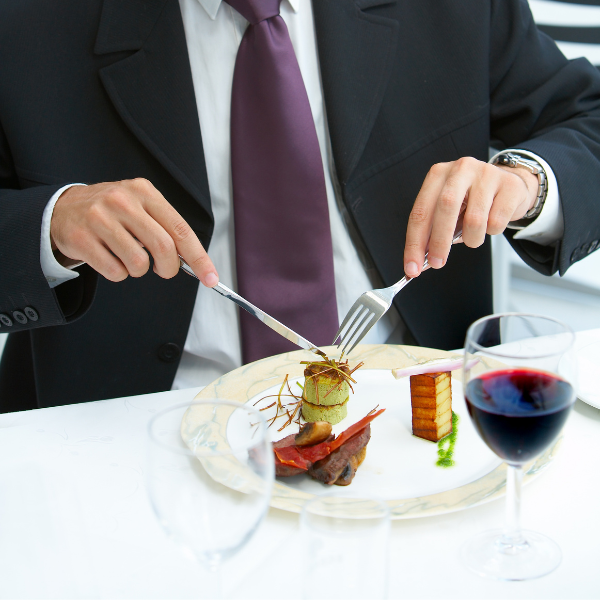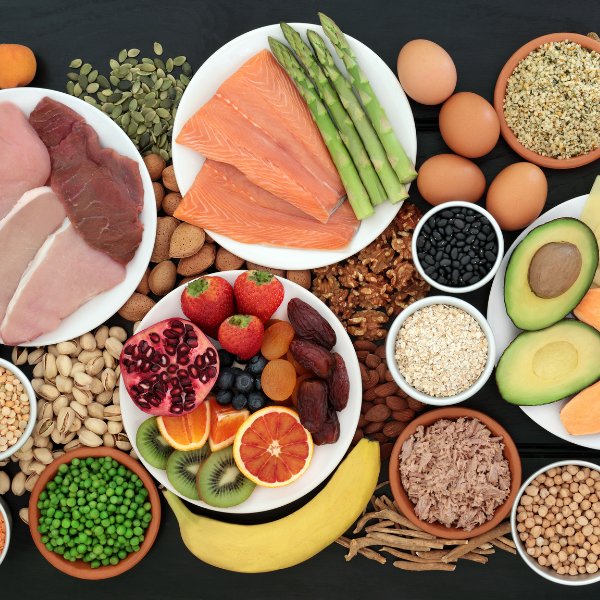Choosing the right wire shelving kit for your restaurant is essential in maintaining an organized, efficient, and safe working environment. The right shelving can maximize storage space, improve accessibility, and facilitate better inventory management. However, with a wide variety of options available, selecting the perfect fit can feel overwhelming. This article will guide you through the process, helping you make an informed decision that aligns with your restaurant's needs.
Different Types Of Wire Shelving Kits
Epoxy-Coated Shelves
Epoxy-coated shelves are a go-to solution for environments prone to moisture, such as walk-in coolers, freezers, and areas with fluctuating temperatures.
The application of an epoxy coating creates a protective barrier that significantly enhances the shelf's resistance to rust and corrosion.
This protective layer not only extends the lifespan of the shelving unit but also ensures that the storage conditions do not lead to contamination of food items with rust particles.
The availability of epoxy-coated shelves in various colors also allows for color-coding storage areas for better organization and efficiency in food handling.
Chrome-Finished Shelves
Chrome-finished wire shelving units are prized for their sleek, mirror-like finish that brings a touch of professionalism and aesthetic appeal to storage spaces.
These shelves are most suited for dry environments, making them perfect for storing non-perishable food items, kitchenware, tableware, and other supplies in pantries or kitchen areas.
The reflective surface of chrome shelving not only adds to the visual hygiene of the space but also improves visibility, making it easier to locate items.
It's important to note that chrome-finished shelves are not the best choice for areas with high humidity or direct contact with water, as they are susceptible to rust.
Stainless Steel Shelves
Exemplifying the pinnacle of durability and resistance to environmental challenges, stainless steel shelves are a versatile choice capable of serving a wide range of storage needs.
Their inherent resistance to corrosion and rust makes them an ideal selection for both dry and moist environments, including refrigerated storage, dishwashing areas, and food preparation zones.
Stainless steel's strength enables it to support heavier loads without compromising structural integrity, making it a reliable option for storing bulky kitchen equipment and large quantities of supplies.
The non-porous nature of stainless steel surfaces facilitates easy cleaning and disinfection, making these shelves an excellent choice for maintaining high standards of hygiene in food service settings.
Each type of wire shelving kit offers unique benefits tailored to different storage needs and environmental conditions within a restaurant. Whether it's the moisture-resistance of epoxy-coated shelves, the sleek appearance of chrome-finished shelves, or the unparalleled durability and hygiene of stainless steel shelving, understanding these differences can guide restaurant owners in choosing the most suitable shelving solution for their specific requirements.
Consider the Size of Your Restaurant
Small Establishments
Large Operations
Optimizing Storage with Specialized and Adjustable Shelving Solutions
Specialized Storage Units : Consider specialized wire shelving like wine racks or glass hangers, which not only save space but also add functional elegance to the restaurant's ambiance.
Modular Design Shelves : Opt for modular wire shelving systems that allow for add-ons. These systems can grow with your business, enabling you to add additional shelves, side panels, or even enclosures to existing units.
Corner Units : Utilize every square inch by incorporating corner wire shelving. These units fit neatly into corners, often an underused space, and provide extra shelving without obstructing the flow of the area.
Security Units : For high-value items or alcohol storage, wire shelving units with locking doors or security enclosures can safeguard against theft or unauthorized access.
Multipurpose Racks : Consider racks that are designed for dual purposes, such as drying racks that can also serve as storage. This is particularly useful in dishwashing areas where efficiency and space-saving are paramount.

Shelving Accessories
To maximize the utility and organization of your wire shelving, consider incorporating the following accessories, each designed to address specific storage needs:
Shelf Liners : These liners create a smooth, solid surface on wire shelves, preventing small items from tipping over or falling through the gaps. They're especially useful in areas where you store glassware or small containers that could otherwise be unstable on standard wire racks. Shelf liners come in various materials, such as plastic or silicone, and can be cut to fit the exact dimensions of your shelves, making them a versatile solution for enhancing shelf stability and cleanliness.
Hooks and Bins : Attaching hooks to the sides of your wire shelving units allows for the convenient hanging of cooking utensils, aprons, or towels, keeping these items easily accessible and off work surfaces. Small bins can also be hung or clipped onto the shelving, providing a handy spot for storing smaller items like spices, packets, or bar tools. This use of vertical space can drastically improve organization and efficiency in a busy kitchen environment, ensuring that essential items are within arm's reach.
Dividers : Shelf dividers are pivotal for maintaining an organized storage system, allowing you to compartmentalize shelves for different items and preventing them from mixing or falling over. These accessories are particularly beneficial in communal storage areas shared by different shifts or departments, ensuring that everyone can quickly locate the items they need. Dividers can easily be adjusted or moved, providing the flexibility to change your storage setup as your inventory or menu evolves.
Different Types of Casters
Casters are a critical component for mobile wire shelving units, providing the means to relocate shelving with ease. The two main types of casters each serve a distinct purpose in a restaurant setting:
Swivel Casters : These swivel casters can rotate 360 degrees, enabling the shelving unit to be moved in any direction with minimal effort. This is particularly beneficial in cramped kitchen spaces where flexibility of movement is crucial for maneuvering around corners and through narrow aisles. Swivel casters help to optimize space utilization by allowing staff to temporarily shift shelving out of the way during cleaning or reorganization, then move them back with ease as needed.
Locking Casters : Locking casters are designed to provide a secure and stable base when a shelving unit is intended to remain in a fixed position. With a simple locking mechanism, they prevent accidental rolling or shifting of the shelves, which is crucial when loading or unloading items to maintain safety. When engaging the lock on the casters, you effectively convert a mobile unit into a stationary one, combining the benefits of flexibility with the assurance that the unit will remain in place during use.
How To Install Wire Shelves?
Installing wire shelving in your restaurant can streamline operations and increase efficiency. Below are some key points to ensure proper installation:
Assembly : Most wire shelving kits are designed for easy assembly, often requiring only a rubber mallet or no tools at all. Slots and grooves are typically employed to allow for easy adjustment of shelves at varying heights, accommodating different item sizes conveniently. Begin assembly by attaching the poles to the base and then gradually add each shelf, securing clips as you go to ensure stability and strength throughout.
Location : When determining the location for your shelving, consider the busiest areas of your kitchen and those that are less frequented. Place shelves in such a way that they provide easy access to the most commonly used tools and ingredients but do not obstruct the movement of staff. It's also wise to consider proximity to cleaning stations, cooking areas, and refrigeration to optimize the workflow and minimize the need for excessive movement during peak hours.
By following these considerations during the installation of your wire shelves, you can enhance both the functionality and efficiency of your kitchen's operations.
Key Considerations for Choosing The Right Wire Shelving

When selecting wire shelving for your restaurant, storage area, or kitchen, it’s important to consider several factors to ensure that your choice meets both current and future needs. Here are the crucial considerations:
Material : The material of your wire shelving affects both its durability and suitability for different environments. Chrome-plated wire shelving is common for dry storage and display areas due to its aesthetic appeal. However, for moist environments, such as walk-in freezers or wash areas, stainless steel or epoxy-coated shelving is preferred due to its resistance to rust and corrosion. Each material has its benefits and limitations, so choose according to the intended use and environmental conditions of your storage area.
Weight Capacity : Wire shelving comes with varying weight capacities, ranging from light-duty shelves suitable for small appliances and dishware, to heavy-duty options capable of holding bulk storage items or kitchen equipment. Consider the items you need to store and select shelving that can support the weight without sagging or collapsing. Overloading shelves not only poses a safety risk but can also compromise the structural integrity of the unit over time.
Capacity and Adjustability : The overall storage capacity and the adjustability of the shelving unit are key to accommodating your needs. Consider both the vertical space between shelves and the ability to adjust this spacing. Your storage requirements may change over time, so opting for adjustable shelving ensures that you can reconfigure your setup as needed, making it a versatile long-term solution.
Location : The intended location of your wire shelving influences several other factors, such as material choice and size. For tight spaces, consider compact or corner units to maximize storage without impeding traffic flow. Additionally, consider the environment: Will the shelving be exposed to high humidity, varying temperatures, or other challenging conditions? Make sure the shelving material and design are appropriate for the location’s conditions to ensure longevity and functionality.
By carefully evaluating these aspects, you can make an informed decision that enhances your operation's efficiency, safety, and organization.
How To Tailor Shelving to Different Restaurant Areas
Kitchen
Kitchen shelving solutions are critical for maintaining an efficient and sanitary workspace. The right selection of shelving material can significantly impact both the functionality and cleanliness of the cooking area.
Heat-Resistance : Select shelving materials like stainless steel that can withstand high temperatures.
Non-Corrosive : Choose materials that resist corrosion for long-term durability.
Hygienic : Opt for shelves that maintain cleanliness easily in a kitchen environment.
Durability : Ensure the shelving can endure rigorous cleaning regimes.
Easy Disassembly : Consider shelves that can be quickly disassembled for deep cleaning.
Smooth Surfaces : Look for units with smooth surfaces to minimize grime and bacteria buildup.
Storage Room
Storage room organization is crucial for maintaining efficiency and inventory management in any operation. Carefully selecting the right shelving can transform an overcrowded space into a well-organized storage hub.
High Capacity : Choose shelving that supports heavy weight, ideal for bulk items.
Durability : Opt for heavy-duty systems like steel wire with reinforced supports.
Adjustability : Select shelving that adjusts to fit various item sizes.
Maximized Storage : Look for options to maximize vertical space, keeping areas organized.
Accessibility : Ensure shelving arrangement maintains easy access to stored items.
Dining Area
In the dining area, shelving not only serves functional needs but also plays a key role in setting the restaurant's atmosphere and style. Thoughtful selection and placement of shelving can elevate the overall dining experience by merging aesthetics with practicality.
Dual Purpose : Use shelving for both storage and display in dining areas.
Seamless Integration : Choose shelves that complement the restaurant's decor.
Enhanced Ambiance : Opt for materials like polished wood or coated metal.
Practical Storage : Ensure shelving holds decorative items and dining essentials.
Decor Matching : Select shelves that match or accentuate the dining theme.
Visual Appeal : Integrate elements that add to the space's aesthetic.
By addressing the specific requirements of each area within your restaurant, from the heat and chaos of the kitchen to the aesthetic demands of the dining area, you can choose shelving that not only meets functional needs but also contributes positively to the working environment and overall dining experience.
Keys for Effective Commercial Storage
Efficient commercial storage solutions can dramatically improve day-to-day operations by simplifying processes and enhancing organizational flow. The selection of the right shelving and storage systems is essential for businesses to maintain order, save time, and ensure a clean environment.
Visibility and Accessibility : Items should be easy to find and reach, eliminating time wastage looking for things. This not only enhances efficiency but also plays a crucial role in ensuring that fast-moving items are always within arm's reach, facilitating smoother operations.
Adaptability : Shelving systems should be flexible to accommodate changing storage needs, allowing for adjustments in shelf height or configuration without requiring complete overhauls. Such adaptability is key in responding to seasonal changes, new product introductions, or special promotions.
Hygiene : Materials that are easy to clean and maintain, ensuring food safety are paramount. Stainless steel or coated shelving, for instance, offers a non-porous surface that doesn't harbor bacteria and can withstand harsh cleaning agents, making it ideal for areas where cleanliness is a priority.















